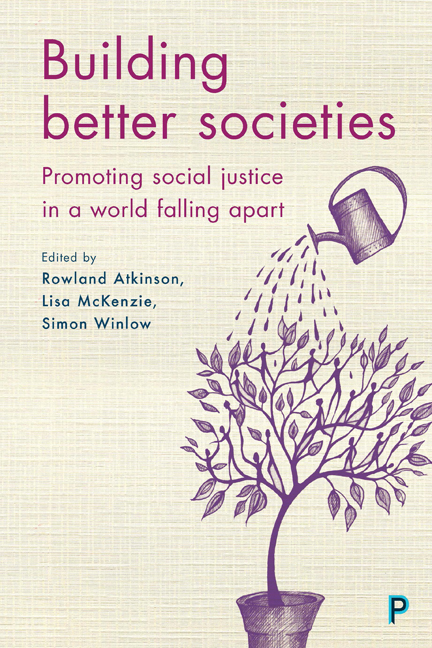Three - Better politics: Narratives of indignation and the possibility of a prosocial politics
Published online by Cambridge University Press: 05 April 2022
Summary
My motivation for writing this chapter is that we require a truthful understanding of politics that admits the complex and at times very contradictory subject positions that we adhere to. For all of us concerned about the modus operandi of politics and the seeming unwillingness of governments to ameliorate widening inequality or mitigate the impact of climate change, there is always a temptation to disengage from contemporary political struggles and instead expend time postulating what a ‘post-neoliberal’ future might entail.
In an exploration of neoliberalism, the politics of resistance and prosocial forms of engagement, I argue that a useful starting point is to interrogate the subject positions we adopt to understand the contemporary political era. Often these rely on a depiction of an economic and social crisis accentuated by neoliberalism, a sense of moral outrage and the attribution of culpability on to those we consider responsible. While such subject positions might assuage our yearning to feel indignant about what we don't like, they fall short as a starting point for the development of an adequate sociological understanding. Drawing on psychoanalytical literature and other sources, I consider the risks of relying on an abstracted form of neoliberalism and a defensive strategy of resistance as a foundation for the development of more prosocial forms of politics.
Among the arguments set out in this chapter is that our despondency at the magnitude of the prevailing economic and societal challenges, such as global warming, inequality and social isolation, encourages us to rely on an overly simplistic understanding of a neoliberal hegemonic project and accompanying binaries of ‘good’ and ‘bad’, ‘us’ and ‘them’. Furthermore, we assume that a strategy of resistance is a radical position, even though it may eventuate in a defensive posture that requires only ‘others’ to change, or even result in a form of disengagement from prosocial forms of politics. Rather than see neoliberalism as something concocted by ‘others’, we must reconcile our own complicity in neoliberal practices. It may be seductively appealing to apportion blame on to all things ‘neoliberal’ and adopt a defensive form of resistance, but ultimately they are futile responses.
- Type
- Chapter
- Information
- Building Better SocietiesPromoting Social Justice in a World Falling Apart, pp. 27 - 38Publisher: Bristol University PressPrint publication year: 2017



